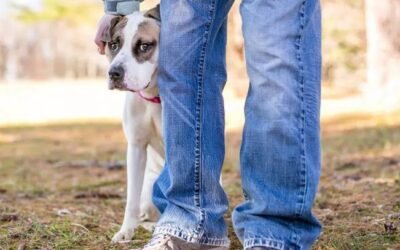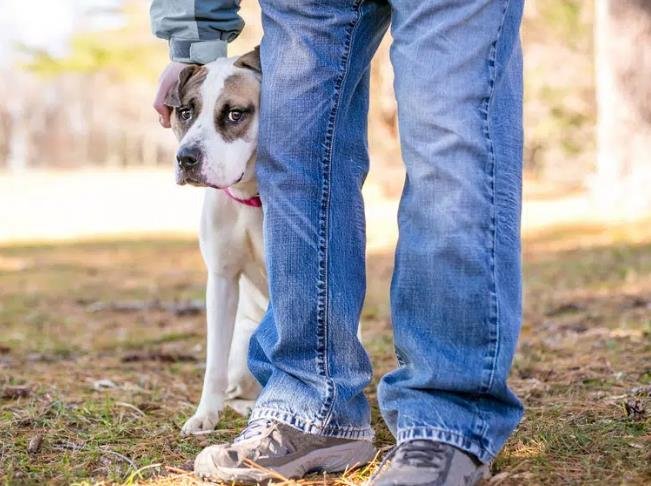so I need to figure out how to take care of a Beagle puppy. Let me start by recalling what I know about Beagles. They’re a small to medium-sized breed, right? Known for their sense of smell and being part of the hound group. They can be energetic and maybe a bit stubborn. Okay, so taking care of a puppy in general involves feeding, training, exercise, grooming, health check-ups, and socialization. But Beagles might have specific needs.
First, nutrition. Puppies need special food. I think Beagle puppies might need a high-quality puppy formula. How often do you feed them? Maybe three to four times a day because they’re growing. Portion control is important to prevent obesity, which Beagles are prone to. Avoid human food, especially toxic things like chocolate, grapes, etc. Also, ensure they have fresh water always.
Next, exercise. Beagles are active and curious. They need regular exercise to prevent boredom and destructive behavior. How much exercise? Maybe short walks and play sessions. Mental stimulation is also key. Puzzle toys or scent games could be good since they’re scent hounds. But don’t over-exercise them as puppies because their joints are still developing.

Training and socialization. Beagles can be independent, so early training is important. Start with basic commands like sit, stay, come. Use positive reinforcement—treats, praise. Consistency is key. Socialization with other dogs and people to prevent shyness or aggression. House training might take time; crate training could help. Also, Beagles are known to follow their nose, so recall training is crucial to prevent them from running off.
Grooming. Beagles have short coats, so maybe brushing once a week. They shed, so regular brushing helps. Bathing only when necessary to avoid skin issues. Check ears regularly because floppy ears can trap moisture and lead to infections. Nail trimming, teeth brushing as part of routine.
Health care. Vaccinations, deworming, flea/tick prevention. Regular vet check-ups. Spaying/neutering as recommended. Beagles might be prone to certain health issues like hip dysplasia, epilepsy, or hypothyroidism. Watch for symptoms and maintain a health record.
Safety. Beagles are curious and might chew things. Puppy-proof the home by securing trash, electrical cords, toxic plants. Secure fencing in the yard because they might dig or follow a scent and escape. Microchipping and ID tags in case they get lost.
Mental stimulation. Since they’re scent hounds, activities that engage their nose. Maybe hide treats around the house or use interactive toys. Training sessions can also be mental exercise. Prevent boredom to avoid destructive behavior.
Sleep. Puppies sleep a lot. Provide a comfortable bed or crate. Establish a routine for bedtime. Maybe a crate helps with security and house training.
Common challenges: Howling or barking—Beagles are vocal. Training to manage excessive noise. Chewing—provide appropriate chew toys. Stubbornness—patience and consistent training.
Wait, did I miss anything? Maybe separation anxiety. Beagles are social, so leaving them alone too long might cause anxiety. Gradual training to be alone, providing toys when leaving.
Also, monitoring their weight. Beagles love food and can overeat. Stick to feeding schedules and measure portions.
Let me organize this into sections. Nutrition, exercise, training, grooming, health, safety, mental stimulation, sleep, common challenges. That covers the main points. Need to make sure each section has specific advice for Beagle puppies, not just general puppy care. Highlight their energy levels, scent drive, tendency to follow their nose, potential health issues, and socialization needs. Also, emphasize consistency in training because they can be stubborn. Maybe mention using their food motivation in training with treats.

Taking care of a Beagle puppy involves addressing their unique needs as energetic, scent-driven hounds. Here’s a structured guide to ensure their well-being:
1. Nutrition
High-Quality Diet: Feed a balanced, high-quality puppy formula tailored for small to medium breeds. Consult your vet for recommendations.
Feeding Schedule: Offer 3-4 small meals daily to support growth and metabolism. Transition to adult food around 12 months.
Portion Control: Measure portions to prevent obesity. Avoid free-feeding and limit treats to 10% of daily intake.
Hydration: Ensure constant access to fresh water. Avoid toxic foods (chocolate, grapes, onions, etc.).
2. Exercise
Physical Activity: Provide 20-30 minutes of exercise twice daily (walks, playtime). Avoid over-exercising to protect developing joints.
Mental Stimulation: Engage their nose with scent games, puzzle toys, or hide-and-seek with treats. Rotate toys to maintain interest.
3. Training & Socialization
Positive Reinforcement: Use treats and praise for obedience training (sit, stay, recall). Beagles are food-motivated but can be stubborn; consistency is key.
Early Socialization: Expose them to diverse environments, people, and dogs to build confidence and reduce anxiety.
House Training: Use crate training to establish routines. Take them outside frequently, especially after meals and naps.
4. Grooming
Coat Care: Brush weekly with a soft-bristle brush to manage shedding. Bathe every 2-3 months or when dirty.
Ear Care: Clean ears weekly with a vet-approved solution to prevent infections.
Nail & Dental Care: Trim nails monthly and brush teeth several times a week.
5. Health Care
Vet Visits: Schedule vaccinations, deworming, and regular check-ups. Discuss spaying/neutering timing (typically 6-9 months).
Preventative Measures: Use flea/tick prevention and heartworm medication. Monitor for breed-specific issues (hip dysplasia, epilepsy).
6. Safety
Puppy-Proofing: Secure trash, cords, and toxic plants. Use baby gates to restrict access to hazardous areas.
Secure Yard: Ensure fencing is high and dig-proof. Supervise outdoor time to prevent escapes triggered by scents.
Identification: Microchip and use ID tags for safety.
7. Mental Enrichment
Scent Work: Engage in nosework activities or interactive feeders. Consider training for tracking or agility as they grow.
Chew Toys: Provide durable chew toys to satisfy teething and prevent destructive behavior.
8. Sleep & Routine
Rest Area: Offer a cozy crate or bed in a quiet space. Puppies need 18-20 hours of sleep daily.
Consistent Schedule: Establish routines for feeding, potty breaks, and bedtime to reduce anxiety.
9. Common Challenges
Separation Anxiety: Gradually acclimate them to alone time. Leave engaging toys (e.g., stuffed Kongs) when departing.
Excessive Barking/Howling: Redirect with commands or toys. Avoid reinforcing noise with attention.
Food Motivation: Use treat-based training but avoid overfeeding. Secure food storage to prevent scavenging.
By addressing their physical, mental, and emotional needs with patience and consistency, your Beagle puppy will grow into a well-adjusted, healthy companion. Celebrate their curiosity and energy while providing structure to channel their traits positively.







